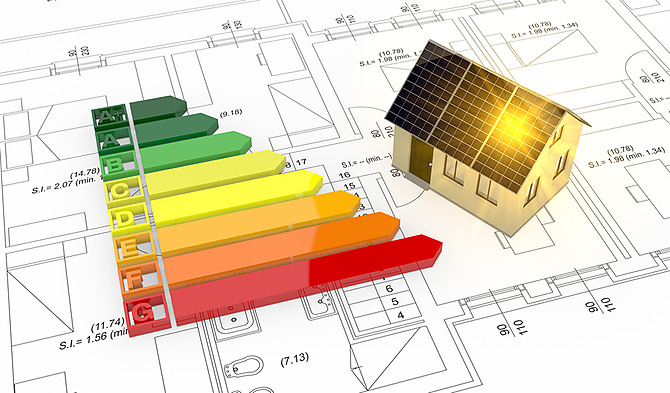The real estate sector is experiencing a profound transformation driven by the growing concern for climate change and the search for more sustainable solutions. In this context, the Energy Performance Certificate has become a fundamental document that evaluates the energy performance of a building and provides valuable information for both owners and buyers or tenants.
What is the Energy Performance Certificate?
The Energy Performance Certificate is an official document that classifies buildings on a scale from A (maximum efficiency) to G (minimum efficiency). This certificate is obtained through a detailed analysis of various factors such as thermal insulation, heating and cooling installations, window quality, lighting, and ventilation. The information provided by the certificate allows understanding the building's energy consumption and its environmental impact.
The European Directive on Energy Performance of Buildings (EPBD)
The EPBD Directive is the European Union's legal framework that establishes minimum requirements for the energy performance of buildings. This regulation has evolved significantly in recent years, imposing increasingly higher demands in terms of energy consumption and CO2 emissions.
One of the most relevant innovations in the latest revision of the EPBD is the introduction of restrictions on the sale and rental of properties with an energy rating below certain thresholds. Starting in 2030, all residential buildings must have a minimum energy rating of E. Subsequently, in 2033, this threshold will be raised to D.
These measures aim to promote the energy renovation of the existing real estate stock and encourage the construction of new buildings with high energy efficiency standards.
The Importance of Energy Efficiency in Buildings
Energy efficiency in buildings brings multiple benefits:
- Reduction of CO2 emissions: Contributes to mitigating climate change.
- Economic savings: Reduces long-term energy costs.
- Improved comfort: Efficient buildings are healthier and more comfortable.
- Increase in property value: Buildings with a high energy rating have a higher market value.
- Compliance with regulations: It is a legal requirement in many countries.
Economic Incentives for Energy Renovation
To facilitate the transition to a more efficient real estate stock, governments have implemented a series of economic incentives, such as:
- Tax deductions: Deductions are allowed in the income tax return for expenses incurred in energy efficiency improvement works.
- Direct subsidies: Grants are awarded to finance part of the costs of the works.
- Subsidized loans: Loans at reduced interest rates are offered to finance energy efficiency investments.
- Preferential financing lines: Access to financing lines with special conditions for energy renovation is facilitated.
In Spain, programs like the PREE (Energy Renovation Program for Buildings) and the energy renovation plans of the autonomous communities offer various financial aids to promote improving energy efficiency in buildings.
How to Improve the Energy Rating of a Property?
There are numerous measures that can be implemented to improve the energy efficiency of a building, including:
- Thermal insulation: Improve insulation of walls, ceilings, and floors.
- Window replacement: Install double or triple glazing windows with thermal break.
- Installation of efficient heating and cooling systems: Opt for condensing boilers, heat pumps, or more efficient air conditioning systems.
- LED lighting: Replace traditional bulbs with LED lights.
- Renewable energies: Install solar panels for producing hot water or electricity.
The Future of Energy Efficiency in the Real Estate Sector
European regulations and economic incentives are driving a profound transformation in the real estate sector. In the near future, it is expected that all buildings will be highly energy efficient. This will pose a challenge for owners but also an opportunity to improve people's quality of life and contribute to a more sustainable future.
The energy efficiency certificate has become a key element in the real estate sector. Investing in improvements to increase a property's energy efficiency is not only a legal obligation but also a smart investment that will generate long-term benefits for both owners and the environment.
Additionally, if you have any specific questions about your property or how to improve its energy rating, feel free to contact me.

